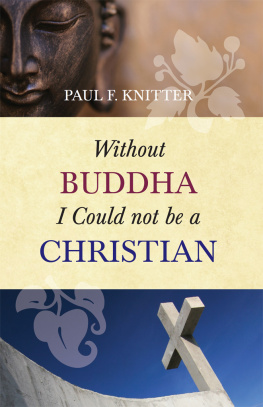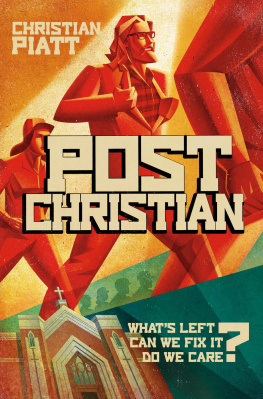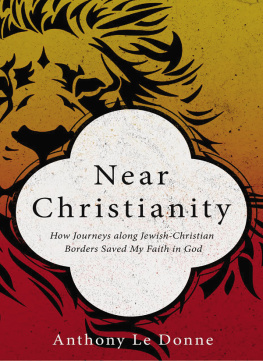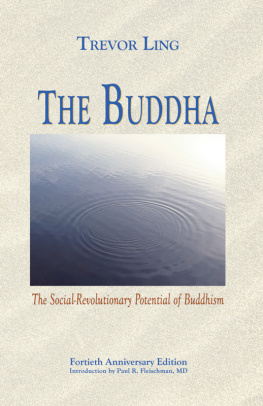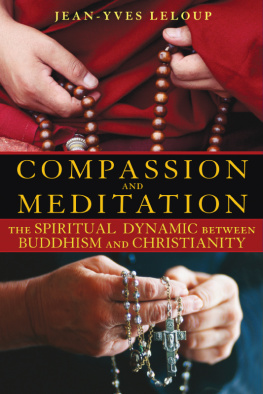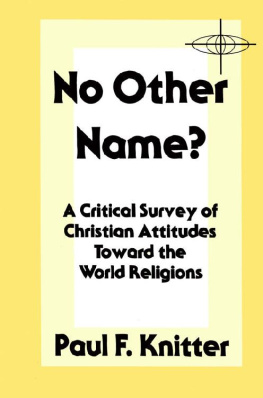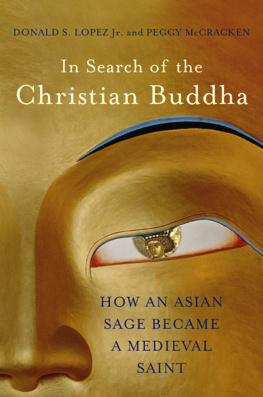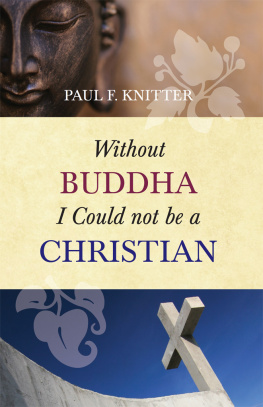Without Buddha I Could not be a Christian
The dialogue between Christianity and Buddhism is one of the most important conversations of our time, and Paul Knitters new book shows why. If you want to know how religions can help to revitalize each other, this is the place to start.
David Loy Besl Family Chair for Ethics/Religion and Society at Xavier University
In this revealing retrospective, Knitter recounts very personally how his encounters with liberation theology and with other religions, especially Buddhism, challenged and transformed his Christian faith. This will be of interest to all who are concerned with religious diversity and social justice.
Leo Lefebure Professor of Theology, Georgetown University
Radiates wisdom and warmth. Is it possible to become more fully Christian by taking most seriously the Buddhist path becoming Buddhist in order to live more fully the Christian life? Agree or not with Pauls answer, we can be most grateful to him for pressing the question and making so very clear the possibilities and risks along the way.
Francis X. Clooney Professor of Divinity and Professor of Comparative Theology, Harvard Divinity School
A ground-breaking work of inter-religious dialogue, comparative theology and social ethics. The rarest combination of theological acumen, humility and humor. Like a thrilling mystery, the insights of each section build to the final chapter, a tour de force, in which Knitter rediscovers the very meaning of serving others. A must read for anyone who wants to renew their faith and rediscover their humanity in intimate dialogue with the faiths of others.
Lama John Makransky Associate Professor of Theology, Boston College
Paul Knitter has always been uncommonly courageous in his writings about Christianitys relationship with other religions. He has also been able to engage other religions with complete openness and honesty. This unique book is highly recommended as an example of how to do personally engaged, self-reflective theology in a religiously plural world.
Rita Gross Professor Emerita of Religion, University of Wisconsin-Eau Claire
Knitters rich book should be a source of fascination and guidance for seekers of all sorts. One of the finest contemporary books on the encounter between religions in the heart and soul of a single thoughtful person.
Library Journal
This book is an excellent survey of the possibilities for Buddhist-Christian contact.
Anglican Theological Review
This is a fascinating book ... accessible to anyone in the pew, not without a touch of quiet humour ... a book to be read and reflected upon.
Journal of Theological Reflection

A Oneworld book
Published by Oneworld Publications 2009
Reprinted 2009, 2010 (twice)
This paperback edition published in 2013
Copyright Paul F. Knitter 2009
The right of Paul F. Knitter to be identified as the Author of this work has been asserted by him in accordance with the Copyright, Designs and Patents Act 1988
All rights reserved
Copyright under Berne Convention
A CIP record for this title is available from the British Library
ISBN 9781780742489 (ebook)
ISBN 9781851689637
Typeset by Jayvee, Trivandrum, India
Cover design by Design Deluxe
Printed and bound by the CPI Group (UK) Ltd, Croydon, CR0 4YY
Stay up to date with the latest books, special offers, and exclusive content from Oneworld with our monthly newsletter
Sign up on our website
www.oneworld-publications.com
For my atheist brother, Don,
Who did his best to keep me honest.
PREFACE
Am I Still a Christian?
Contrary to much of its message, this is a rather selfish book. Ive written it mainly for myself.
For much of my adult life, but especially during the past twenty-five years, Ive been struggling with my Christian beliefs. Those beliefs have been with me for a long time. Born in 1939, brought up by hard-working, deep-believing, working-class Roman Catholic parents on the suburban edge of Chicago, educated at St. Josephs Elementary by the School Sisters of St. Francis, I never for a moment doubted that God was everywhere, that Jesus was his Son, and that if you ate meat on Friday or missed Mass on Sunday you were in deep trouble with God and Jesus. Those beliefs began to be both refined and deepened when, at the age of thirteen, and to the bewilderment and reluctance of my parents, I announced that God was calling me to the priesthood. I went off to what was then called a minor (high school) seminary and spent the next fourteen years of my life studying and preparing to be a priest.
Ordained in Rome in 1966, I was assigned the job of studying, and then teaching, theology. (The study was at the University of Marburg, Germany, and the teaching was at Catholic Theological Union in Chicago.) After I was granted permission to leave the priesthood in 1975 (what had looked easy when I was thirteen became more of a nagging problem at thirty: celibacy), and even after I married the love of my life in 1982, I was able to stay faithful to the other love of my life, theology. Instead of seminarians, I taught undergraduates at Xavier University in Cincinnati for some thirty years.
But as exciting as my job was, it didnt really resolve indeed it often seemed to amplify the deeper, persistent questions that life kept throwing at me. When I say life, I mean the need and the effort to connect what I was taught about God and Jesus and heaven and hell with all that I was confronting and feeling and learning as a responsible (I try) and an intelligent (I hope) human being. More and more, I found myself a Catholic Christian all my life, a theologian by profession having to ask myself what I really do, or really can, believe.
Do I really believe what I say I believe, or what Im supposed to believe as a member of the Christian community? Im not talking about the ethical teachings of Jesus and the New Testament witness. The gospel vision of a society based on honesty, justice, and compassion makes eminent, urgent sense. Nor do I have major problems with the controversial ethical or practical teachings of my church (most of them having to do with what one Catholic theologian has called the pelvic issues) dealing with matters such as birth control, divorce, the role of women, homosexuality, clerical celibacy, episcopal leadership, and transparency. Certainly, these are matters of grave concern, but with many of my fellow Catholics Ive realized that, as has often been the case in the history of our church, on such issues the sense or voice of the faithful has a few things to teach the pastors. Its a matter of time.
No, when I say Im struggling, I mean with the big stuff the stuff that applies to all Christians, not just my own Roman Catholic community. Im talking about the basic ingredients of the Creed, the beliefs that many Christians proclaim together every Sunday and that are supposed to define who they are in a world of many other religious beliefs and philosophies. Im talking about God the Father almighty, Creator of heaven and earth, who as a personal being is active in history and in our individual lives, whom we worship and pray to for help and guidance. Im talking about his only-begotten Son who died for our sins and will come again at the end of time and who will grant eternal life and personal immortality to the body and souls of all those who answer Gods call, while those who reject the call will be dispatched to a hellish punishment that will never, ever end.

